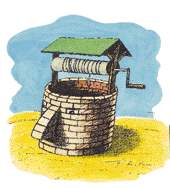 | |
|
Thanks for the memories
Rich, who specializes in the field of memory and aging, says by the time we reach 25 our memory capacity is on the wane. The good news is, not all aspects of our memory are affected equally. Memories of routines, motor skills, even songs, are all well-retained -- even in old age. Although we lose brain cells as we age (which can't be replaced), we can increase the number of connections between cells. Life-long learning, for instance, seems to be a buffer against some memory problems in later life. People can work at buiding up a "cognitive reserve," says Rich. Rich is conducting research on what constitutes normal memory. "We're looking for people who are 55 and over to see what effect aging has on memory." Defining "normal" memory isn't simple, Rich says. "There are about 50 different types of memory. It makes sorting out just what skills or methods we use to remember difficult." Demographics are driving the need for research into memory and aging, she says. "As the population ages, memory disorders are more common. Understanding age-related memory change is crucial to better health care and diagnosis." |
|
Text Menu [ Home | Past Issues | Subscriptions | Feedback | Site Map | Search ] |
 "If you don't remember where you put your keys, don't worry," says psychology professor Jill Rich. "But if you find them and don't remember how to use them, you might have a problem."
"If you don't remember where you put your keys, don't worry," says psychology professor Jill Rich. "But if you find them and don't remember how to use them, you might have a problem."